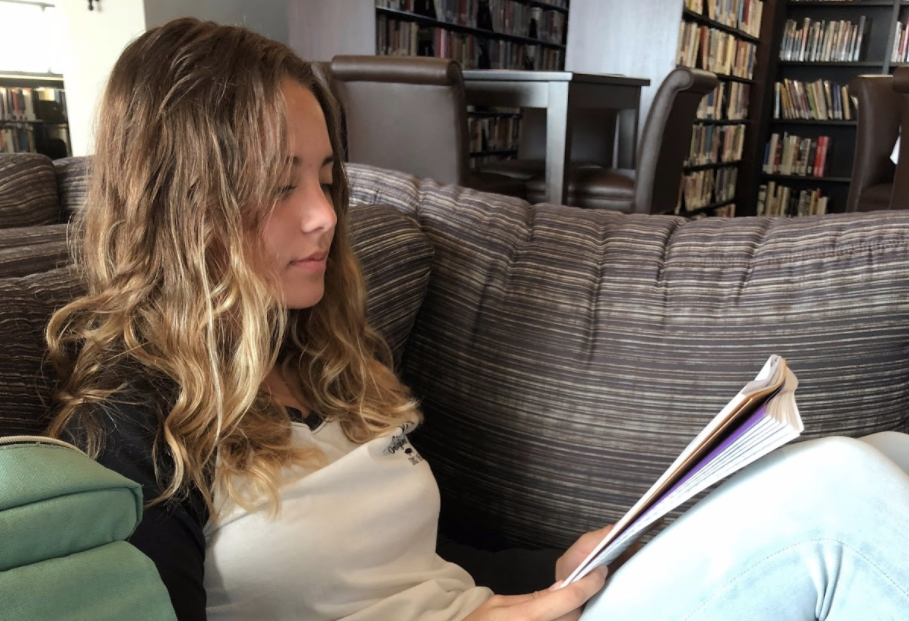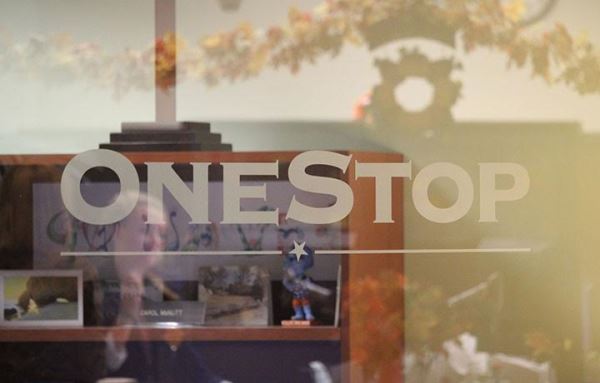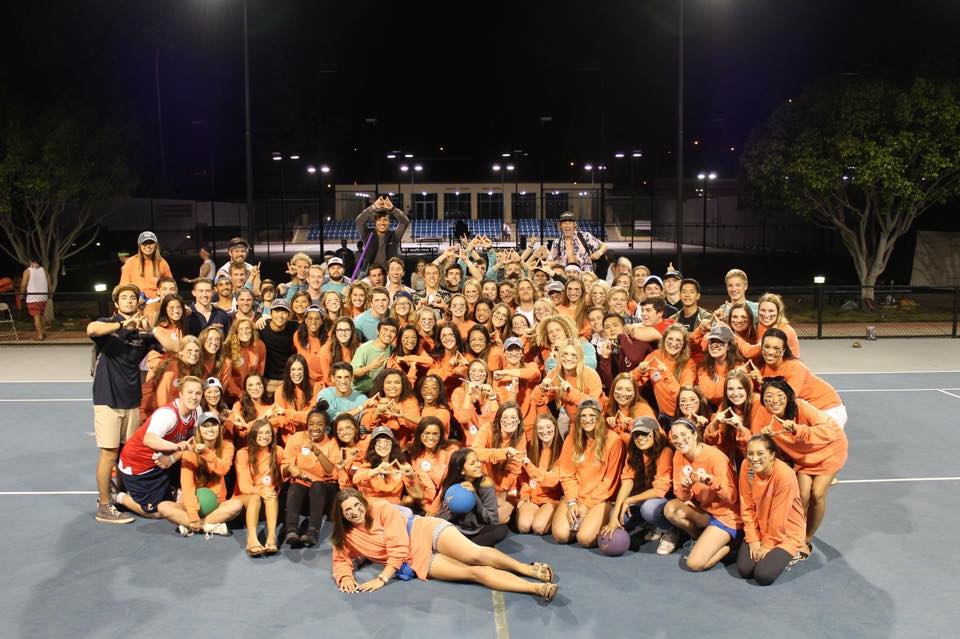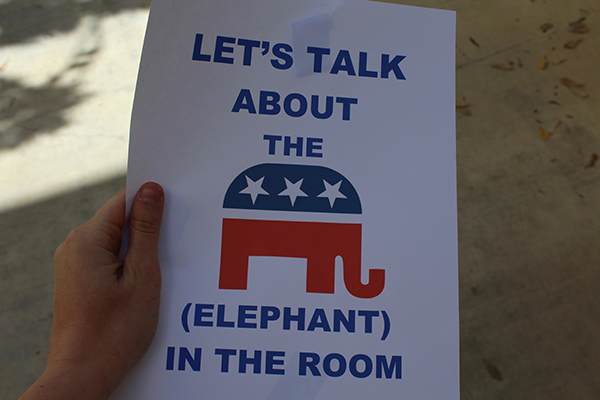
One of the top Pepperdine University stereotypes doesn’t live up to the hype: Not all students are conservative Republicans.
Students and outsiders believe Pepperdine is predominately conservative. However, a Pepp Post survey of 78 students found that Pepperdine students are evenly split in terms of being liberal and conservative. Pepperdine’s privacy, price, religious affiliation and student demographics have created a diverse melting pot of political views.
“There’s this huge mindset and stigma that social structures cultivate that says Pepperdine is a Republican school,” said Omari Allen, junior political science major and interim president of College Democrats. “And I think maybe the administration is fairly conservative, but I don’t think that really represents the students anymore. I really think that we’re diverse.”
Is Pepperdine a conservative university?
The Best Schools, a university-ranking website, voted Pepperdine as one of the 20 Best Conservative Colleges in America because of its Christian and Republican ties.
Historically, Pepperdine’s fourth president, William S. Banowsky, was prominent in conservative politics and he was a “rising star in the Republican Party,” according to the Los Angeles Times. His support for Ronald Reagan tied Pepperdine to Republican politics, labeling the university as conservative. The Reagan family’s support for Pepperdine’s mission strengthened the stereotype.
Although 48 percent of students surveyed believe today’s Pepperdine students are conservative, roughly 41 percent identify as Republican, 19 percent are Democrat, 4 percent are Libertarian, 4 percent are Green, 21 percent said it depended on the candidate and 10 percent said “other.”
“We’re defiantly more conservative than a lot of schools in Southern California,” said Tony Clark, a freshman business administration major. “But I guess it’s not extremely rooted in tradition, it’s very progressive.”
Pepperdine is as divided as America
The Pepp Post poll found Pepperdine students today have balanced political views. Some 33 percent of students identify as conservative compared to 27 percent who identify as liberal, with others in the middle.
The same survey found that for the 2016 presidential election, roughly 41 percent of Pepperdine students plan to vote for a Democratic candidate, 28 percent plan to vote for a Republican and 32 percent are voting for a different political party, further debunking the rumor that all Pepperdine students are Republican.
“If there’s anything that I’ve noticed it’s that there’s a lot more liberal-minded students here than I think we tend to let on,” Allen said. “My hope is that once College Democrats gets running and moving and shaking that people would start to see that and then the culture would start to change and people would be like ‘Oh this is an example of America, it’s 50-50.’”

Wealth and politics
While there is an equal divide between the number of liberal and conservative students, Pepperdine is stereotyped as conservative because it’s an expensive, private Christian university.
“We likely have more self-identified Republicans because we are private,” Political Science Professor Christopher Soper said. “So our average student has more means than those at public universities and income is a predictor of party identification.”
The Atlantic reported that people who make less than $70,000 are more likely to vote Democratic, while people who make above $70,000 will more likely vote Republican. Meanwhile, Forbes found 56 percent of America’s 50 richest families are Republican, compared to 14 percent who are Democrat, fueling the stereotype that a majority of wealthy Americans are Republican.
Students say religion affects political ideology
More conservative religious views have long been linked to conservative political views. In a nationwide Religious Landscape Survey, Pew Research Center found that 56 percent of Evangelical Protestant Christians are conservative while 22 percent are liberal. Among Roman Catholics, 37 percent are conservative while 13 percent are liberal.
Some 53 percent of students in the Pepp Post poll said religion impacted their political ideology. Students said their religious views affect their moral and ethical judgement in terms of politics.
“Although I strongly believe that government should not involve itself with religion, inherently my views are affected by the religious beliefs I have grown up with,” said Olivia Belda, freshman integrated marketing communication major and Student Government Association senator. “Yet, as a millennial, those views are slightly shifting.”
Scotland Garapedian, a freshman organizational communication major, believes a politician’s religious affiliation can gain or lose voters.
“It’s interesting to look at Bernie Sanders,” Garapedian said. “Like how many people actually know that he’s Jewish? I don’t think a lot of people do because he doesn’t publicize it. If more people were to know that, they wouldn’t dare be voting for him. (Religion) can to a certain extent (affect political views) if you’re not Christian.”
Houston Wilson, a political science and religion major and freshman class president, said religion impacts his decisions, but doesn’t make him conservative.
“I don’t understand how a Christian could be conservative,” Wilson said. “Jesus Christ was a radical. Conservatism goes against everything Christianity is and everything Christ taught.”
Demographics and politics
In addition to religion, students and faculty agreed parental units and demographics played a role in impacting one’s political views.
“Geography and family background are strong predictors of partisan identification,” Soper said. “And so it stands to reason that where students are from, as well as their parent’s partisan background, will shape their own.”
Brianna Beiler, freshman international and Hispanic studies major, said she doesn’t like stereotyping students, but thinks geography affects students’ political views.
“We pull a large percentage of our student body from traditionally conservative geographic areas,” Beiler said. “Christianity is often seen as an integral part of the Republican Party platform. This seems to naturally bring more Republicans to Pepperdine than there would be at a public university.”
The Washington Post said people choose to live in communities based on geographic and social aspects. The study said conservatives’ ideal community was a rural or small town, while liberals prefered cities. More than a quarter of Americans said it’s important to live where others share the same political views, Dan Balz wrote.
“When I think about people who are more Democrats or liberals I think of San Francisco,” Garapedian said. “When I think of people who are more conservative I look at the South. Maybe if I was born in the South I’d be a really strong, strong conservative. But I’m not though. I think parents are even more of a factor than geography.”
Politics on campus
Because of the melting pot of ideas, students had different experiences talking about politics on campus.
Garapedian received backlash from a professor for sharing his political views and said he is known as “the Trump supporter” in class.
“I like Trump a lot,” Garapedian said. “But that doesn’t mean I like every aspect of what he has to say. I think that’s a very common issue people face. Just because you like someone doesn’t mean you like everything about that candidate.”
Thomas Reinhard, senior political science major and advertising director for Pepperdine Graphic Media, said some students didn’t want to be his friend because he is Republican.
“I do find there to be a major divide between liberal and conservative students,” Reinhard said. “I can remember my freshman and sophomore years when there were a few people who didn’t want to be friends with me because I was a strong conservative.”
Caroline Herron, a freshman integrated marketing communication major said she’s gotten condemned for sharing her political views and now keeps her opinions to herself.
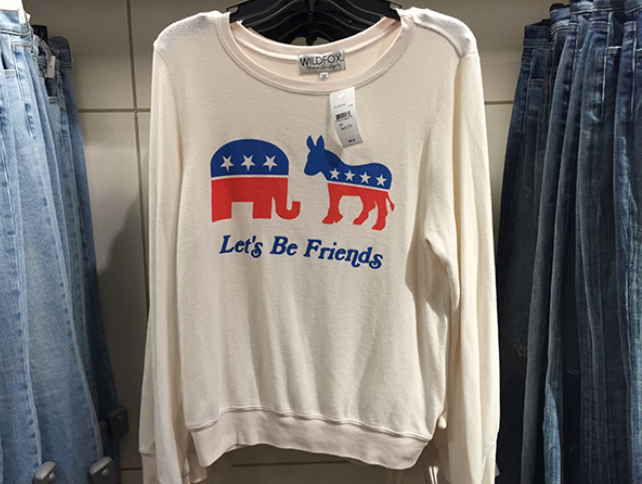
“I’m friends with people who are supporters of a different political party than I am,” Herron said. “Or a completely different political candidate and I’m very respectful of that and I hope they respect me.”
Although there is a slight tension, most students and faculty don’t worry about it, said
Abigail Smith, visiting professor of Communication and assistant debate team coach.
“I feel like the tension on campus is a little more low-key,” Smith said. “People are thinking and feeling things but they don’t say them. And I don’t know if that’s a good thing. I think it’s better to have places like debate where people are factually engaging in civil dialogues on the issue.”
Caroline Edwards completed this story in Dr. Christina Littlefield’s spring 2016 Jour 241 class.

